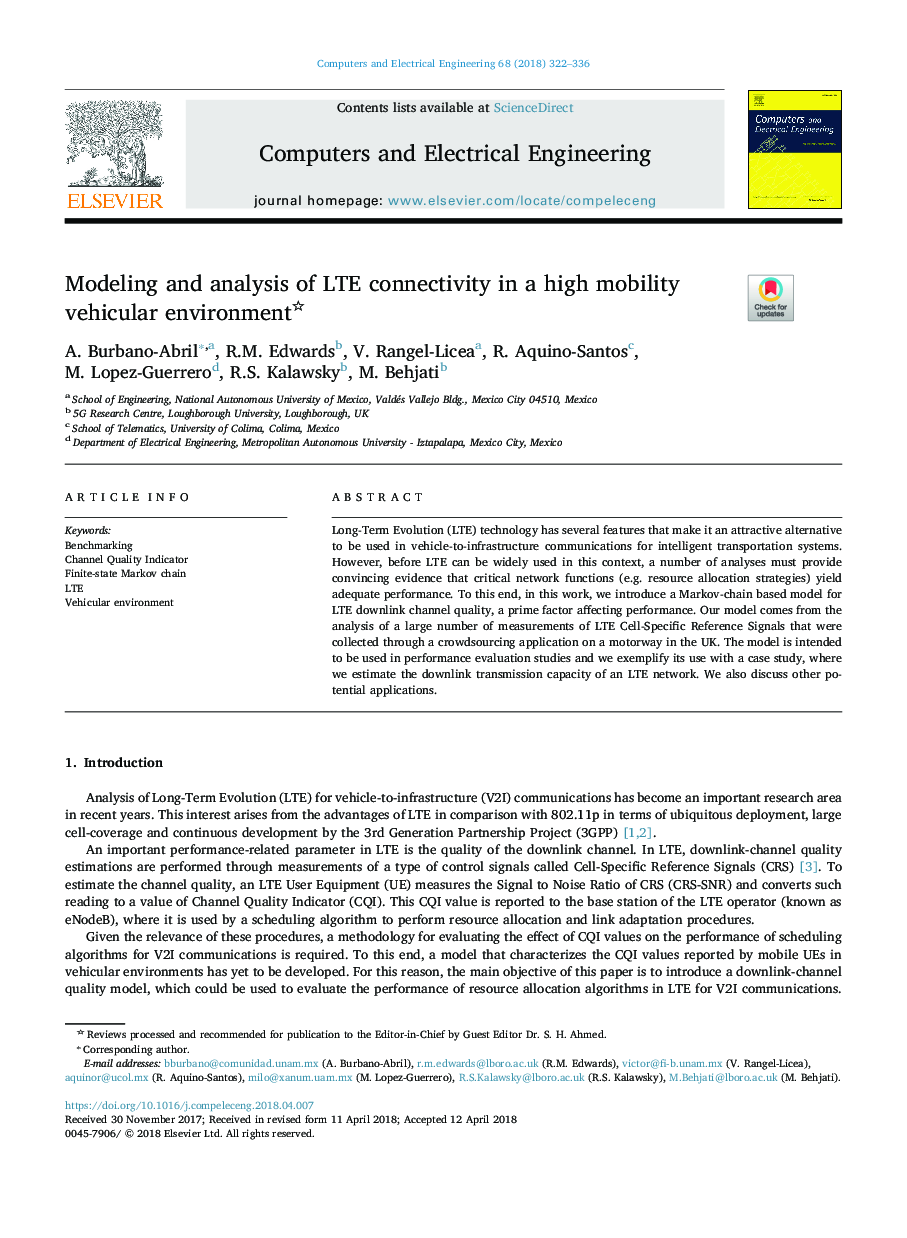| Article ID | Journal | Published Year | Pages | File Type |
|---|---|---|---|---|
| 6883391 | Computers & Electrical Engineering | 2018 | 15 Pages |
Abstract
Long-Term Evolution (LTE) technology has several features that make it an attractive alternative to be used in vehicle-to-infrastructure communications for intelligent transportation systems. However, before LTE can be widely used in this context, a number of analyses must provide convincing evidence that critical network functions (e.g. resource allocation strategies) yield adequate performance. To this end, in this work, we introduce a Markov-chain based model for LTE downlink channel quality, a prime factor affecting performance. Our model comes from the analysis of a large number of measurements of LTE Cell-Specific Reference Signals that were collected through a crowdsourcing application on a motorway in the UK. The model is intended to be used in performance evaluation studies and we exemplify its use with a case study, where we estimate the downlink transmission capacity of an LTE network. We also discuss other potential applications.
Keywords
Related Topics
Physical Sciences and Engineering
Computer Science
Computer Networks and Communications
Authors
A. Burbano-Abril, R.M. Edwards, V. Rangel-Licea, R. Aquino-Santos, M. Lopez-Guerrero, R.S. Kalawsky, M. Behjati,
